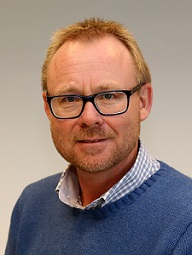HoD News - 18 June 2020

Dear colleagues,
The spring semester 2020 has been affected by the Covid-19 situation to an extreme degree. With a very short notice, we have been forced to change our on-site teaching to 100% online teaching. Virtual teaching and online meetings are surely going to become an important element of the way we will work and interact in the future. We need to evaluate our experiences to identify what worked, and what didn’t work. Aarhus BSS has already gathered a lot of information across education programmes in the form of course evaluations from the spring, which contain feedback regarding online teaching, and we also have an overwhelming amount of qualitative student feedback. It is important that we assess the experiences from both sides of the desk (or rather, the computer screen). Moving forward, we should strive for improving the online/blended learning format of teaching to develop quality online learning methods. Aarhus BSS is already in dialogue with CUL in order to prepare general advice, webinars etc. during the late summer to assist lecturers doing online teaching in the fall. Similarly, we should evaluate the exam formats and defences of Bachelor's projects/Master's theses that we have conducted this summer.
Teaching, Fall 2020
I have previously informed about the challenges regarding teaching schedules for the fall 2020. We have an extraordinary pressure on auditoriums and lecture rooms, and we do not know whether the distancing restrictions will discontinue (plan A) or continue (plan B).
In plan A, a significant number of courses will have an online or a blended learning format, and in plan B the amount of online teaching has to expand further and we will need to make plans for student groups’ attendance in onsite activities. The planners at BSS Studier are currently working hard to make schedules according to plan A. Unfortunately, the planning process is delayed due to the extraordinary situation, and hence the course schedules will be ready later than normally. It is expected that initial schedules will be available for quality control on 2 July. The final schedules will be made public on 10 July.
In collaboration with the directors of studies, the departments (ECON and MGMT) have suggested courses that potentially may take a full or partial (blended learning) online format. To the extent that we are informed by BSS Studier about the actual teaching format of individual courses, we will inform the lecturers as soon as we have that information. However, particularly for elective courses, we do not expect that we have an answer before 2 July.
A general principle about plan A is that we want as much teaching as possible to be on-site and with priority given to first-year students. Generally, we will attempt to make course schedules that ensure that the vast majority of all other students will have some activities on campus.
Section councils, Excelsior and hirings
Despite the corona circumstances the past months, the department management has worked with many other projects even though some of these have been delayed.
After the summer vacation, the department and its sections will be presented with a document that describes the establishment of section councils. This document, which includes a description of the organization and objectives of the section council work, has already been discussed at LSU and Departmental Forum meetings.
During the spring, we have also worked with setting up the Excelsior platform to handle the new norm system for recording teaching and administrative activities. Most input for individuals has now been recorded in Excelsior, and we expect the system to be available to all department members in the early fall.
During the spring, a number of openings at all levels (postdoc, assistant, associate, and full professor) have been filled. A list of new hires and promotions is included in this week’s ECON Newsletter. I would like to congratulate those of you who have been promoted and give a big welcome to our new colleagues. Some new colleagues have already arrived, and others will commence in their positions during the summer or later during the fall.
We have been recruiting heavily at the junior level this year. Around a dozen new colleagues will start in postdoc or assistant professor positions during 2020. Of these, only two are funded by the department; the rest are to a large extent funded by external grants, which indeed is very impressive. Thanks for your efforts to attract research funding. I am also glad to add that the new hires are going to improve the gender balance within the department significantly, particularly at the junior level.
Best regards,
Niels Haldrup